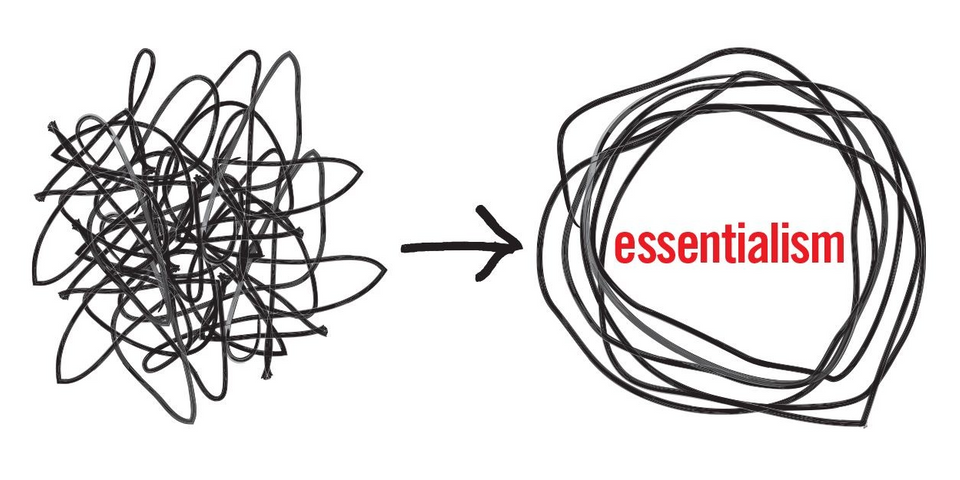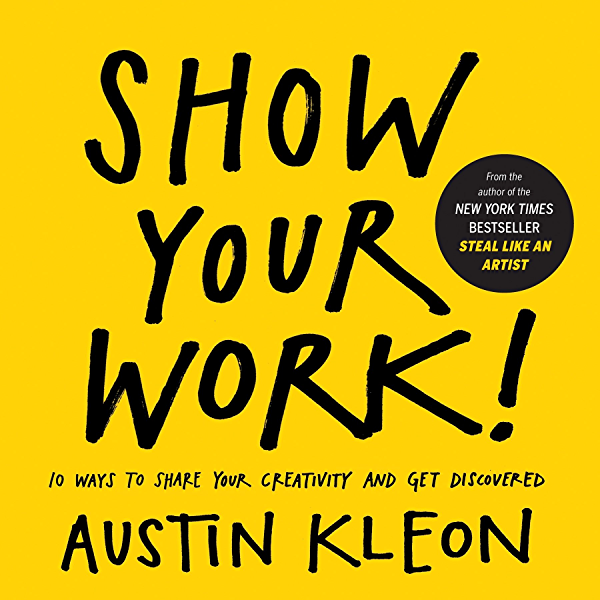Essentialism (Greg McKeown)

This week's book review is about Essentialism by Greg McKeown. It is a very dense book, that actually gives a lot of practical questions to ask. It isn't prescriptive in rituals, but also not so general that it's not applicable.
I actually had this one on my reading list for a while - and after reading Austin Kleon's Show Your Work this seemed like the perfect follow-up. It didn't disappoint.
What is the book about
- The final outcome of being an essentialist is "Weniger aber besser" (Dieter Rams) or "Less but better" - in essence, get the right things done
- The book clarifies (1) How to determine what are the vital few things in the many options of things to do? (2) How to then cut out those many? and (3) How to execute and maintain focus on those few?
What was the effect of this book?
After completing the book, I took some time to let it rest and use W.I.N. as a guiding principle. I actually also compiled all of the book's questions to yield two things: (1) a essentialism audit which I intend to do to focus and build targets, and (2) a regular set of questions to ask myself when structuring my day and receiving incoming requests. In some respect it is being more presently mindful of the power of saying no.
Summary, Quotes and Highlights
What is an Essentialist?
Three core beliefs: "I choose to", "Only a few things matter", "I can do anything but not everything"
- I choose to → Our ability to choose cannot be taken away, it can only be forgotten. How? Everything is designed such that it is hard to say no to.
If you don't prioritise your life, someone else will - Greg McKeown
- Only a few things matter → be mindful of the relationship between time and results
- The law of the vital few (Joseph Moses Juran) - you can massively improve the quality of a product by simply resolving a tiny fraction of the problems
- I can do anything but not everything → trade-offs are real, saying yes to one thing means saying no to another. The better questions to ask are: which problem do I want? and what do I want to go big on?
How to find the vital few in the trivial many?
Escape: Focus is something that we can do - but we must create explicit space to concentrate. Some simple strategies include:
- Don't answer any messages before lunch (if you can manage that)
- Read some classic literature for 15 minutes every morning
Look: Always clarify the question we are trying to answer, stay away from the vague. We should think more of a "lead" in journalism - in every set of facts something essential is hidden, we must find its meaning and connection
Play & Sleep: Reduce anxiety and stress, and protect your own ability to prioritise and execute
Select: Channel the energy of Derek Sivers: if it's not a hell yes, then its a no. A simple process for assessing opportunities: (1) Write it down, (2) Write down 3 minimum criteria to pass, (3) Write ideal /extreme criteria, (4) Discard if it doesn't meet pt. 2 and if it doesn't meet at least 2 extreme criteria. Ask yourself: is this the thing I can do where I can make the highest possible contribution?
How to cut out the many?
Clarify: The more clear your purpose the better you will be at prioritizing. Clarity of purpose comes with simplicity - what is your #1 priority right now? If we could be truly excellent at only one thing, what would it be? How specific can we make that? How will we know when we are done?
Dare: or how to say no in the moment. First let us allay our fears: (1) Denying a request is different from denying a person, we're doing the former, (2) We don't necessarily need to say the word no, (3) Consider explicitly the tradeoff you are making in that moment, (4) A clear no is more graceful than a vague non-committal yes.
The no repertoire:
- I am flattered you thought of me, but I simply don't have the bandwidth / I would very much like to but I'm overcommitted
- The awkward pause - count to 5 before delivering any verdict on a request
- The no but - I am very focused on X at the moment, but I would be interested in doing this at point Y.
- Let me check my calendar and get back to you
- Sure. What should I de-prioritise? (If you have a direct supervisor) / Yes, I am happy to make this a priority - which of these projects should I take the time out of?
- A joyful Nope!
- You are welcome to do X. I am willing to do Y to facilitate. (reminds others they have a choice to)
- I can't, but X might be interested
Uncommit:
- Surmount the sunk-cost fallacy → Admit failure (at least to yourself) on this particular project
- Avoid forcing a fit → Get a neutral person's opinion on the matter
- Shift the status quo → Apply zero-based budgeting i.e. start from the ground up
- No casual commitments → Pause before you think
- Avoid FOMO → Test whether removing the activity / or not participating will have any bad consequences
Edit: Am I doing what I want to be doing? Am I focused around it as clearly and precisely as possible?
Limit: Set clear boundaries (incl. work/home via a time to end all work). Don't let them fall over, it's like a sandcastle (they break easy but take a while to build). How? (1) Don't rob people of their problems - don't enable them to pass them on to you, (2) Find out what your deal-breakers are in any engagement, (3) Craft social contracts (communication, commitment etc.) with others at the beginning of projects
How to keep our focus on the vital few?
Buffer: Inevitably things will come up and interrupt, prepare by giving yourself more time and leeway to complete things (all-nighters don't yield good results). Simple tricks: (1) start with an outline or a blank doc with 1 sentence every time you have a new project. (2) Do some scenario planning - what would be the reason for failure? How can I plan for that?
Subtract: Determine the biggest obstacle to you making progress. Remove constraints to do more by removing more things
Progress: Focus on small wins every day → read Atomic Habits by James Clear
Focus: If flustered or overwhelmed, ask "What is important right now?". A routine: (1) On paper list all things in your head in one line each, (2) List all items that respond to "What might I want to do someday as a result of today?", (3) Prioritize and execute - give things a numerical hierarchy and start at the top.




